Just words
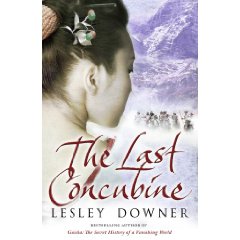
The Last Concubine 
By Lesley Downer, 624 pages, published the 12th February 2009 by Corgi Books (978-0552155205)
The story: weak, the ambiance: slightly better, the prose: rather nice, with little jewels in the Japanese poems, and the verdict: a rather uninspiring book.
For the subject, the books reminds me of Shogun, by James Clavell, which I always thought as a great story. Among the best parts in Shogun, it is the very last episode, when the Shogun, Toranaga, is describing how the future will be. It is a spooky narration, seeing the intelligence of the Shogun, the art of the writer. The best chapter in The Last Concubine is also the last one; unfortunately, it is the afterword, where the author explains how the book was written. The very last sentence of this afterword is: "Writing this book has given me the chance to imagine myself there [the old Japan] and to take my readers with me". But, somehow, that does not happen: the story is tool dull as to feel yourself transported to another times. It is easy to enjoy some parts of the book, but it lacks consistency, it lacks weight. It is, at the end, an insipid love story and, in addition, too large to be appreciated.
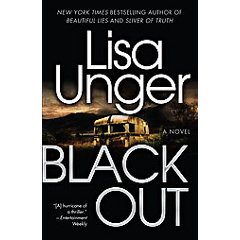
Black Out 
By Lisa Unger, 560 pages, published the 28th April 2009 by Vintage (978-0307472298)
Big suspense, total chaos mixing an ill mind, a bizarre scenario and a major complot. As expected, the complot seems to be only alive in the mind of the protagonist, and only the last chapters -last pages- provide some base for the real happenings. But, all together, the story is very well founded, and indeed imaginative.
The style is a bit dense. It is written on first person by the protagonist -right, the ill mind-, with lot of space for her thoughts and memories, resulting quite uninviting. This is probably needed by the plot, which blends perfectly the past, the present, the memories of what has happened, and perhaps has only happened on the mind, providing a really complex intrigue that does definitely invite to the reading.
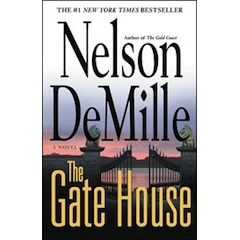
The Gate House 
By Nelson DeMille, 699 pages, published the 8th January 2009 by Sphere (978-1847441171)
A soap opera well orchestrated, with a too fast ending. And I do not mean that the story is short, all the opposite. But after telling a good story along the rather long book, the ending seems quite abrupt, as if the argument had been already too long or the author had other pressing things or books in mind.
A good read, being the best of the book the humor and big mouth of the protagonist.
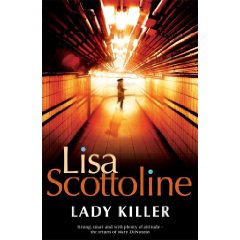
Lady killer 
By Lisa Scottoline, 255 pages, published the 5th September 2008 by MacMillan (978-0230707016)
Imagine watching a A-Team show because of the strategy. Or reading, as an adult, a Famous Five story from Enid Blyton for the mystery. I am sure that there is some strategy on the A-Team adventures, although I doubt that to be its main point. Lady Killer is, in any case, definitely, a thriller. Well, kind of what you would expect seeing on the TV just after lunch: easy, nice, even sweet.
But: the story is not really bad -and neither the book, really an easy read-, although the characters seem stereotypes extracted from a Golden Girls episode. I guess there is a space for thrillers where the story is purely linear, no twists, no surprises, and this book definitely fits there.

I Haven't dreamed of flying for a while 
By Taichi Yamada, 208 pages, published the 6th March 2008 by Faber and Faber (978-0571234974)
Each time I read a Japanese author, I know I will be reading some spiritual experience, something spooky will happen to something/somebody in the book. It is part, as I gather, of the read-a-Japanese-book experience, something like expecting a detective on a thriller, or a end-of-the-world storm in a Stephen King book.
Such a generic comment can only be unfair. In fact, I know of at least a book from Stephen King without storms -The girl who loved Tom Gordon-, and Japanese mangas are usually all but spiritual. Nevertheless, perhaps its is my usual choice of authors, or its is just than more contemporary Japanese literature (or culture) have a sweet spot for spirituality.
In any case, this book excels at it. A lady who gets younger until dying as a toddler, and a man who gets through it with its own doses of experiences (speaking fluently other languages, although that seems fully normal, definitely). And although the argument is spookily simple, or simplistic -behind the getting younger there are no additional stories-, the result is a nice reading experience, smooth, although rather flat.
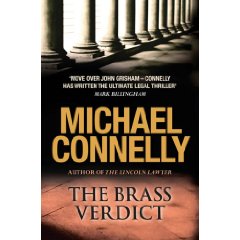
The Brass Verdict 
By Michael Connelly, 608 pages, published the 10th January 2009 by Orion (978-1409102038)
Although a rather typical law/jury book, Michael Connelly lives up to the expectations: as the back book mentions, it is 100% addictive. With half of the developments on the story, the book would still be good. But it is twisted, re-twisted, and, when all the events seem to be over, there is still space for a few twists more on the story. And, more importantly, the whole chain of events is still very believable.
That is, probably not a memorable book, but one that does not allow being turned down.
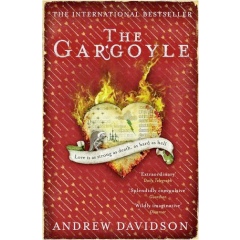
The Gargoyle 
By Andrew Davidson, 502 pages, published the 1st January 2009 by Canongate Books Ltd (978-1847671691)
Under the cover of mystery and history, this is a romantic book, further disguised by the cynicism of the main character, his dialogs, his great punches. This is a great story teller, fun, interesting.
The story, and its mystery, is developed little by little, with the many historical scenarios mainly happening in medieval times; this development is simply good, up to the point where LoVe gets first order treatment, and then, well, the story seems to lose its appeal. The travel to the Dantesque Inferno, the dialogs there completely lost me.
Fortunately, by the end the story recovers its pace, and the book is finished with a good taste in mouth. Finally, not only the book has a lot of style, its presentation is also very stylish, at least on its British edition.
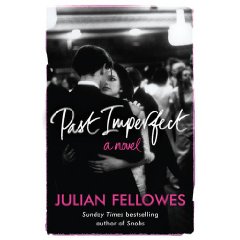
Past Imperfect 
By Julian Fellowes, 528 pages, published the 30th April 2009 by Phoenix (978-0753825419)
A trip into the time, into the memories, and a lot of considerations about live. If only for this last point, the book is already a good read. But the story itself invites to be read, with situations so alive that the book seems at moments a biography, being so touching the descriptions -but sometimes too lengthy, almost boring-.
I guess that the appeal of this book to me, lies, on one side, on the commentaries of the character about other people, about life. On the other side, on the described history, in how society changed in the last 50 years. And all, in a rather entertaining style.
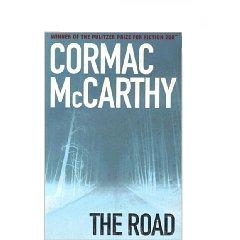
The Road 
By Cormac McCarthy, 256 pages, published the 1st June 2007 by Picador (978-0330447546)
One single chapter. Dialogs narrated. Very slow pace. Most of the book restricted to two characters, a parent and its son.
The story, in a post-catastrophe world, very simple, and utterly depressing; the narrated dialogs, even simpler.
And, unexpectedly, the book is a really great read. Perhaps for the attention to the prose, perhaps for the realism on the fiction itself, perhaps for how the story ends, a bit of hope after the depressing development, is a book that I have enjoyed and can fully recommend.

The Venetian Betrayal 
By Steve Berry, 560 pages, published the 11th December 2008 by Hodder Paperbacks (978-0340933459)
This book has fast action, interesting but artificial characters, a nice historical background story, and however, it couldn't keep my attention. Enough to say that, with only 50 pages to finish it, I went on holidays and preferred packing other books.
Due to the background story, it is easy to compare the book with any Dan Brown' fictions. It also uses the same fast pace, but here the whole plot is quite uninspired. The story behind, as imaginary as on Dan Brown's books, is really interesting: I found that the last chapter, the author notes, describing most of that historical background, was the greatest chapter in the book!
But the development of the story is carried very poorly, situations are unbelievable, unrealistic in a non fictional way. It seems a book very quickly written after a lot of work done on the background idea, which is definitely a shame.
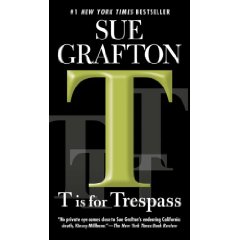
T is for Trespass 
By Sue Grafton, 384 pages, published the 25th November 2008 by Berkley (reprint) (978-0425224847)
Unprentencious book, very easy reading, but quite lacking in most aspects. The story is correct, the development well timed, the good characters easy to like, and the criminals, easy to hate
I could have lost the book at any moment on my reading, and I wouldn't have missed it. At the same time, the book was very enjoyable and I kept turning pages at increasing pace.
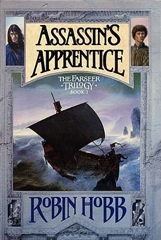
Assassin's Apprentice 
By Robin Hobb, 464 pages, published the 1st March 1996 by Spectra (978-0002246064)
I devored this book in a couple of days, only to realize too late the sinn I was committing. Without redemption, I know I will have the same problem with the other two books of The Farseer Trilogy. It is just captivating.
The descriptions, the narrative is incredibly good. There is fantasy, definitely, but spilled little by little, so that in many moments the book seems almost a historic fiction.
Somebody told me that if I liked The Lord Of The Rings, I would most probably enjoy this book. She was right, but her words make me conscious of the differences between both books. And that is unfair, I think the Assasin's Apprentice can only be compared, if required, to The Hobbit. And then, it loses in imagination, in the core story, in the richness of the described world, as to be, perhaps, a poor relative of The Hobbit. And still, I think it is a wonderful book and I intend to continue with the trilogy very soon.
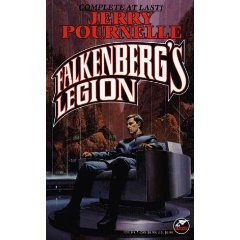
Falkenberg's Legion 
By Jerry Pournelle, 448 pages, published the 1st April 1995 by Baen Books (978-0671720186)
Pure fan. Far west novel on the far far future.
Well written, the legion wins, the reader enjoy.
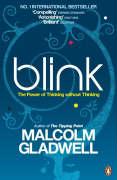
Blink 
By Malcolm Gladwell, 288 pages, published the 23rd Feb 2006 by Penguin (978-0141014593)
By all means, a very interesting read. The book covers the importance of the very first impressions. This includes discussing how to give more importance to them, but also how to disregard those impressions.
Now, sorry for the blunt, my first impression of the book was quite poor: Gladwell seems to enumerate situations and studies, some favour the importance of the first impressions, some show those impressions to be risky or dangerous, or just embarrassing. But once the enumeration is over, not much is left, Gladwell does not reach, or helps to reach, a unique conclusion.
However, I do not think there could be a definitive conclusion, and the book's value is to realize the value or danger of those first impressions. As such, I plan to reread the book in some months.
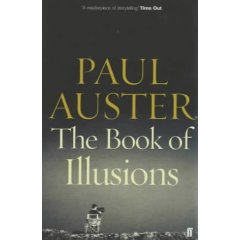
Book of Illusions 
By Paul Auster, 336 pages, published the 4th Sep 2003 by Faber and Faber (978-0571212187)
As usual with Auster, the main story is broken down in many others, sometimes as part of book stories, sometimes as recalls from the past. The result is very non linear, the reader jumps from story to story, and only eventually comes back to the main one, which acts as an effective glue.
It was a pleasure reading through the book, thanks to the great imagination of Auster, always prone to draw unexpected situations, usually unrealistic and some times even mystique.
The prose style is also distinct, with most dialogs written in passive voice. This, together with the little realism of the stories and characters, makes quite difficult getting identified with any character, but that does not take any value out of the book.
What I enjoy most from Auster is precisely getting surprised by situations, or descriptions, or just by the thoughts of the characters. In this sense, Book of Illusions is not the best novel from Auster, but very good, definitely.

The Girl Who Played With Fire 
By Stieg Larsson, 572 pages, published (translation) the 6th Jan 2009 by Quercus Publishing Plc (978-1847245564)
Salander, Lisbeth Salander, is back. She will solve crimes in the Caribbe, hack police computers, fight and win over the bad (and big) guys, escape out of her own grave, and, ultimately, be responsible for the lack of sleep of the unguarded reader, unable to put the book down.
Again another engaging novel, although the story is now much too linear and definitely less interesting as in the first one, where the plot is also more believable.
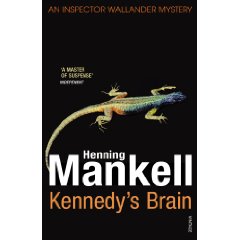
Kennedy's brain 
By Henning Mankell, 464 pages, published (translation) the 7th May 2009 by Vintage (978-0099542049)
The book treats a sad, real problem, the AIDS in Africa. But the trama is so dissapointing, and bad developed, that it loses any credibility -both the trama and the denounce behind-. The book paints a great conspiracy; everybody around Louise Cantor, the main character, dies quick and effectively, as if there would be an invisible army tracking her steps, but always sparing her.
This story comprises a lot of weird people. If somebody is normal, is perhaps a taxi driver or a barman, but all the main characters seem totally ficticious. This is not always bad, at least not if I am inmersed on Tolkien, for example, but is irreal on this kind of novel: current times, current world. Dialogs sound threatical, always dramatic. Louise Cantor, loses her only child and spends the whole book crying. But Mankell fails to transmit the feelings to the reader; I had read recently Giles Blunt's The Fields Of Grief, and the contrast is immediate: without a single tear the feeling of Cardinal's lost was huge, terrible.
Still, the book is entertaining, with lot of developments. It is perhaps a matter of reading it without thinking...
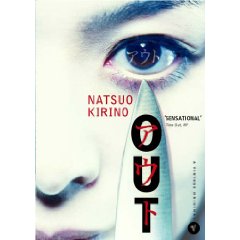
Out 
By Natsuo Kirino, 520 pages, published (translation) the 2nd Sep 2004 by Vintage (978-0099472285)
Nice nasty book. All but a conventional thriller, a very black story on a blacker background. The plot is complex, and most developments caught me totally in surprise.
The descriptions are rich, the imagination, live, and the pace, quite fast. It is easy to feel as desesperate as the characters in the book, or to fear the next moments of the nightmare that they build. Although I could not stop reading the book, there were many moments I had to let it down, just to face the next part of the story. And I could't even guess the story end.
Part of my liking for the book lies, probably, on my attraction for the Japanese culture -as a different one. But this book is definitely better than Real World, another book from Natsuo Kirino that I read a few months back: it shares the style in this book, even having 4 main female characters, although teenagers. In fact, the commonalities in style of both books dissappoint me.
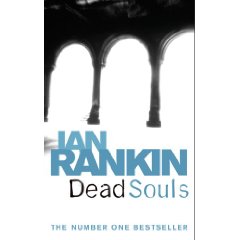
Dead Souls 
By Ian Rankin, 496 pages, published the 22th Sep 2005 (New edition) by Orion (978-0752877167)
I would say that this is not the finest Rebus, but still a nice read. The plot is rather interesting, although it lets too much to the very last clues that finally solve everything.
It is a clever thriller, which does not require any cleverness on the reader, and I guess that any memories of this book will soon disappear, letting just a taste of some good times reading it.
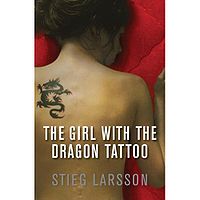
The Girld With The Dragon Tattoo 
By Stieg Larsson, 572 pages, published the 10th Jan 2008 (English translation) by MacLehose Press (978-1847242532)
When I first heard about this book, it was classified as a crime book. Although it certainly envolves a crime -or a lot of them, I find difficult to think of it as crime book-.
The English title is on itself an interesting translation, as it was originally named 'Men who hate women' -each book's part is prefaced with some statistics on male abuse in Sweden. The original name is definitely closer to the subject, although it is definitely less marketable.
There is some mystery inside - the case of a girl long time ago disappeared-, but that is neither the real focus of the novel, and it is even solved much before the novel ends. The author keeps high the reader's attention by following at the same time several stories, and the missing girl's story is just one of them. The girl with the dragon tattoo has her own story, as it does the main book's character, a journalist, or the interesting Vanger family: the characters are very engaging, and Stieg Larson does a great job as the storyteller.
It is not just that the story is well told, it is very cleverly done. Sure, it is interesting that the whole plot is finally solved via computer hacking, and that the hacker is the best hacker in the world, and that the hacker, despite being quite socially limited, is able to play the role of a femme fatale in Zurich, deviating funds worth millions, but the need for this 007 lady is, probably, the only weak point on this (crime | thriller | clever!) novel.
Recommended: definitely, just pay attention to your sleeping time. I spent a zombie day after an interesting night....
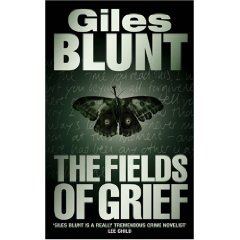
The Fields Of Grief 
By Giles Blunt, 400 pages, published the 4th Dec 2006 by HarperCollins Publishers Ltd (978-0007151394)
Easy, fast reading, sad story very well written.
I was unable to drop the book once started. Curiously, one of the cases in this thriller is pedophilia, exactly the same as in my previous book, The Treatment. While in that book the whole story seems unplausible, in this book it blendes perfectly.
As a mystery novel, the mystery is on itself quickly unveiled. But the writing is excellent, and I could f-e-e-l the enormous grief of Cardinal through the death of his wife. Definitely recommended.
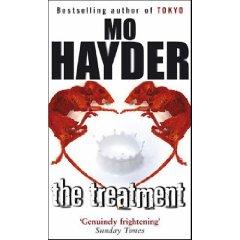
The Treatment 
By Mo Hayder, 499 pages, published the 1st Feb 2005 by Bantam Books (978-0553816990)
This is not really a bad book, even if I can't recommend it and knowing that I won't reread it. It is just too dense, too difficult to enjoy. I was almost dropping it page after page, and only by the 380th page I knew would complete it. But the impression that lingers after the book is finished is in fact quite alright.
I read a few years ago another book by Mo Hayden, Tokyo, and it was definitely a good thriller. Later, I tried Pig Island, which remains in the corner of my unfinished books. All these 3 books share something in common: the main characters are too fictional, too unrealistic, it is difficult to have any emphaty with them.
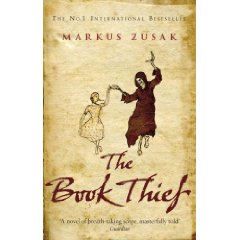
The Book Thief 
By Markus Zusak, 560 pages, published the 1st Jan 2008 by Black Swan (978-0552773898)
Great book; after a slow, dissapointing starting, it keeps a leisure pace that is a joy to read. It is definitely one of the best books I have read lately. Once ended, I long for the life of Rudy Steiner or Liesel Meminger, or the Saukerl of the Mum, all taken by the book's narrator.
The story is developed in Germany, close to Munich, during the Second World War. The narrator is the Death, a half caustic, half poetic Death, with a serious work overload due to the circumstances. But it also the narration of Liesel Meminger, a foster child living with a poor family.
Most chapters could be nice short stories. I am not sure if my favourite would be the chapter describing the presents to Max, the hidden Jew, or the utterly sad chapter describing the bombing to Molching. But better enjoy the whole length at once, 560 pages to taste.